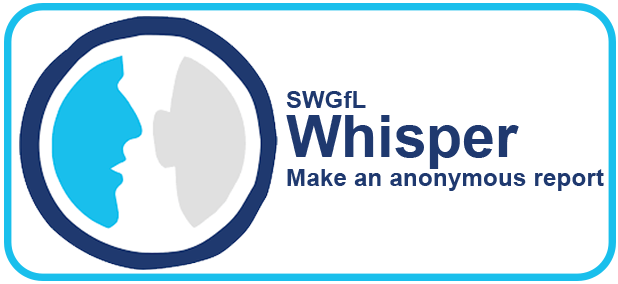Computer Science
Department Intent
“Everybody should learn to program a computer, because it teaches you how to think.” - Steve Jobs, former CEO and creator of Apple
| Knowledge in Computer Science |
The Computer Science curriculum at Lea Manor High School offers pupils the opportunity to develop their understanding and application of the fundamental principles and concepts of computer science, including abstraction, algorithms, and data representation. It also ensures that pupils can analyse problems in computational terms and have repeated practical experience of writing computer programs in order to solve such problems. The curriculum gives opportunities for pupils to evaluate and apply information technology, including new or unfamiliar technologies, and teaches pupils to analytically solve problems. Our curriculum develops pupils to become responsible, competent, confident, and creative users of information and communication technology. All pupils have the opportunity to study computing in Key Stage 4, where they are taught to develop their capability, creativity, and knowledge in computer science, digital media, and information technology, develop and apply their analytic, problem-solving, design, and computational thinking skills and understand how changes in technology affect safety, including new ways to protect their online privacy and identity, and how to identify and report a range of concerns. Our curriculum intent is:
As a result, the Computer Science curriculum will:
|
| Curriculum in Computer Science |
The Computer Science curriculum at LMHS is balanced and comprehensive to equip pupils with the knowledge, understanding and skills for further study in the subject, it raises aspirations through its insights into different career paths and fields within Computing and Computer Science and contributes to the social mobility of pupils. By the time they leave, pupils will have gained key knowledge and skills in the three main areas of the computing curriculum: computer science, information technology and digital literacy. Pupils will have a greater understanding of ICT and basic computational thinking skills. Whether they study the subject further or not they are knowledgeable, competent and confident users of technology using it safely and respectfully.
The Computer Science curriculum provides a broad and coherent curriculum which we hope is engaging and enjoyable. All pupils at KS3 have a 1-hour timetabled session. At KS4 pupils are given the option to continue with their learning and work towards achieving a GCSE in Computer Science.
Assessment at the examination stage takes place through a variety of tasks. There is always an exam styled assessment at the end of the topic, giving pupils an opportunity to reflect on their progress and receive support on how to improve. There will be an emphasis on developing literacy linked to computer science to support students in acquiring the skills needed for the extended writing questions. GCSE exams will be taken at the end of Year 11. There are 2 written examinations, these will be used to grade them on their knowledge and application of the subject. |
| Teaching and Learning in Computer Science |
The Computer Science curriculum at LMHS equips pupils with the knowledge, understanding and skills for further study in the subject, it raises aspirations through its insights into different career paths and fields within Computing and Computer Science and contributes to the social mobility of pupils. By the time they leave, pupils will have gained key knowledge and skills in the three main areas of the computing curriculum: computer science, information technology and digital literacy. Pupils will have a greater understanding of ICT and basic computational thinking skills. Whether they study the subject further or not they are knowledgeable, competent and confident users of technology using it safely and respectfully.
Demonstrate knowledge and understanding and application of the key concepts and principles of Computer Science
To design, program, evaluate and refine solutions.
|
| Assessment in Computer Science |
Learning is assessed in some of the following ways in lessons:
Assessments are used to evaluate and monitor pupil understanding and progress in the classroom. Year 10s will sit PPEs at the end of year 10 and Year 11s will sit PPEs in November, January, February and March. |
| Learning Beyond the Classroom in Computer Science |
Curriculum impact is assessed in the following ways:
|
Curriculum Journey
| Autumn 1 | Autumn 2 | Spring 1 | Spring 2 | Summer 1 | Summer 2 | |
|
7 (Pupils rotate so will spend 9 weeks in Computer Science) |
Foundations of Digital Literacy and Computing |
Foundations of Digital Literacy and Computing |
Foundations of Digital Literacy and Computing |
|||
|
8 (Pupils rotate so will spend 9 weeks in Computer Science) |
Digital Skills for the Real World: From Online Safety to Innovation | Digital Skills for the Real World: From Online Safety to Innovation | Digital Skills for the Real World: From Online Safety to Innovation | |||
|
9 (Pupils rotate so will spend 9 weeks in Computer Science) |
Core Computing Concepts: Digital Ethics, Programming & Networks | Core Computing Concepts: Digital Ethics, Programming & Networks | Core Computing Concepts: Digital Ethics, Programming & Networks | |||
| 10 |
2.2 Programming Fundamentals |
1.1 System Architecture
1.2 Memory & Storage |
1.3 Computer Networks, Connections and Protocols |
1.4 Network Security
1.5 Systems Software
1.6 Ethical, Legal. Cultural and Environmental Impacts |
2.2 Programming Fundamentals |
Preparation and Revision for their Mock Exams |
| 11 |
2.1 Data Structures and Algorithms |
2.2 Programming Fundamentals |
2.3 Robust Programs
2.5 Programming Languages & IDE |
2.4 Boolean Logic |
Revision
Exams |
|
Curriculum Overview
- 1 Year 7 Computer Science Curriculum Overview
- 2 Year 8 Computer Science Curriculum Overview
- 3 Year 9 Computer Science Curriculum Overview
- 4 Year 10 Computer Science Curriculum Overview
- 5 Year 11 Computer Science Curriculum Overview


